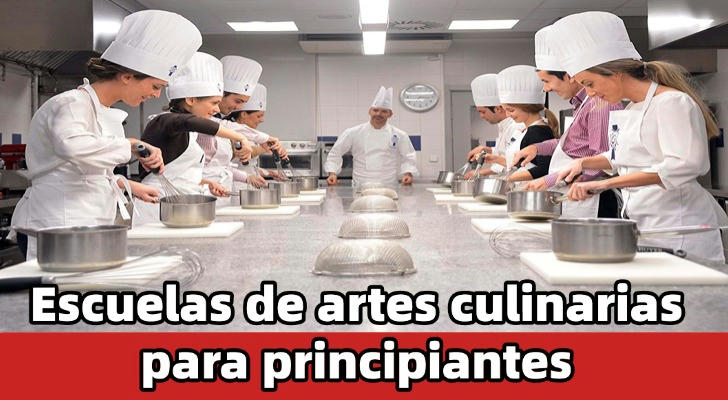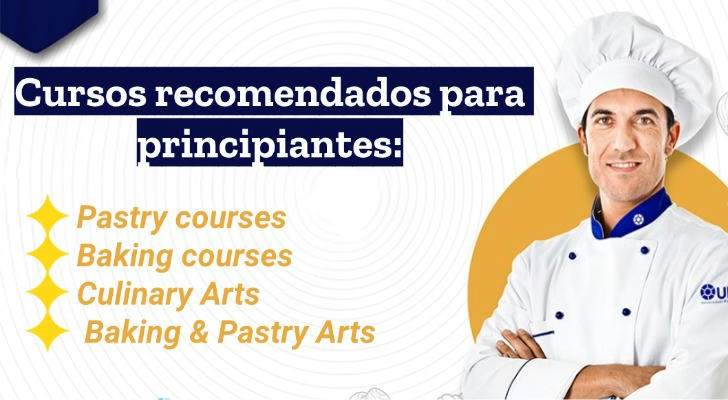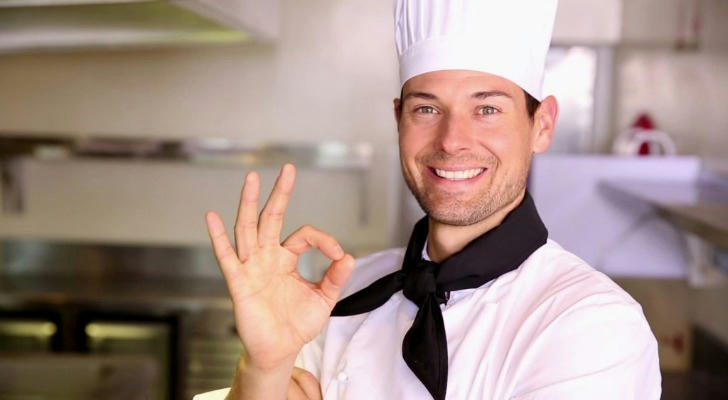Why do beginners choose culinary arts schools? These programs are truly suitable for those starting from scratch.
It doesn't matter if you can't cook; you can become a professional chef from scratch. Nowadays, more and more beginners are choosing culinary arts schools to master kitchen skills through systematic courses, opening up new possibilities for careers, entrepreneurship, or hobbies. This isn't just about cooking; it's a life-changing craft.
I. Why are more and more beginners choosing culinary courses?

Modern people increasingly value practical skills, especially those that enhance hands-on skills and offer a wide range of employment opportunities. Compared to traditional university programs, culinary courses are shorter and more hands-on, making them ideal for:
- Those seeking a career change in the restaurant industry
- Those looking to start a restaurant or run a small business
- Beginners interested in developing cooking as a side hustle or career
The popularity of food on social media and short video platforms has also inspired many people to transition from "food enthusiasts" to "food creators."
II. Course Description: Learn to Cook from Scratch
Most culinary arts schools offer systematic courses for beginners, covering everything from kitchen rules to restaurant management, making them suitable for beginners. Key topics include:
Cooking Basics: This includes basic skills like knife skills, seasoning, stir-frying, boiling, and deep-frying, and is the first step into a professional kitchen.
Exploring International Cuisine: Learn classic dishes from around the world and understand the culinary philosophies of different cultures.
Baking and Pastry Making: Master methods for making everything from bread and cake to fine desserts.
Nutrition and Food Safety: Learn healthy combinations and kitchen hygiene standards.
Food Management and Entrepreneurship: Learn how to design menus, control costs, operate a kitchen, and even plan to open your own small restaurant.
These courses often include practical training and periodic assessments.
III. Recommended Renowned Culinary Schools in the United States for Beginners

1. Culinary Institute of America (CIA)
Renowned as one of the world's top culinary institutions, CIA offers programs ranging from associate's to undergraduate and graduate degrees, making it ideal for those starting from scratch and gradually advancing. The curriculum is comprehensive and hands-on, with each student completing extensive practical training in a real kitchen and participating in the on-campus teaching restaurant.
Suitable Courses:
- Culinary Arts
- Baking & Pastry Arts
- Food Business Management
CIA's campus features a world-class kitchen lab and food research space, making it a top choice for those pursuing a career as a professional chef or starting their own business.
2. Johnson & Wales University (JWU)
JWU was one of the first institutions in the United States to incorporate culinary arts into its university curriculum. Its sophisticated curriculum seamlessly integrates theory and practice. Beginners can begin with foundational courses and gradually move on to food service management and nutritional analysis. The program includes a practical kitchen and paid internships.
Suitable Courses:
- Culinary Arts
- Baking & Pastry Arts
- Culinary Nutrition
JWU's strength lies in its integration of culinary disciplines with nutrition and operations, laying the foundation for future careers in hospitality, wellness, or high-end restaurants.
3. Institute of Culinary Education (ICE)
ICE has campuses in New York and Los Angeles. Its flexible curriculum is ideal for career changers, hobbyists, and urban professionals. It offers certificate programs, short-term camps, and evening classes, perfect for beginners with limited time.
Suitable Courses:
- Culinary Arts Diploma
- Pastry & Baking Arts
- Recreation Cooking Programs
ICE's teaching approach is hands-on, with workshops with renowned chefs and industry internships. It's a great option for those seeking to quickly gain experience, especially in urban settings.
4. Auguste Escoffier School of Culinary Arts
This school's greatest strength is its combination of online courses and local hands-on learning, addressing the concerns of many beginners about limited time and the inconvenience of relocation. It's ideal for working professionals or those seeking to learn while practicing.
Suitable Programs:
- Culinary Arts & Operations
- Baking & Pastry Diploma
- Online Culinary Programs
These programs offer one-on-one instruction from chefs, kitchen work review, and regular live tutoring sessions, making them one of the most comprehensive online culinary programs available.
5. Community College Culinary Programs in Various States
For those on a budget or just looking to get started in the culinary world, many community colleges offer very practical introductory courses, such as LATTC in Los Angeles, CCSF in San Francisco, and Kingsborough in New York.
Suitable Courses:
- Culinary Certificate Programs
- Baking Fundamentals
- Food Preparation & Kitchen Safety
Although this course focuses on basic training, its low tuition and flexible schedule make it an ideal starting point for exploring culinary interests and gaining basic training.
IV. Course Advantages: Cooking is a Universal Life Skill
For beginners, systematic cooking training not only equips you with essential life skills but also potentially opens up a whole new career path. Rather than a skill, it is:
- A self-sufficient skill
- An everyday art form everyone needs
- A tool for generating income and happiness
From the home kitchen to a star-rated restaurant, from hobby to entrepreneurship, from cooking to business plans—the art of cooking can carry far more than you imagine.
V. Real Case Study: Starting from scratch, how can cooking skills change the direction of your life?

Emily Zhang, 34, Los Angeles Emily, a former administrative clerk at an insurance company, had always loved pastries but had no opportunity to systematically study them. She enrolled in a pastry program at the Institute of Culinary Education (ICE) in Los Angeles, starting with the basics of cake making and dough preparation, and gradually mastering French pastry and decoration techniques. During her internship, she gained valuable experience by interning at a cafe.
After graduation, Emily combined her portfolio and social media presence to open her own custom pastry studio, specializing in low-sugar, healthy cakes. She now has a steady flow of orders and regularly teaches small classes. She says, "This program truly helped me find my passion."
Your first dish can be a life-changing moment
Lack of culinary skills isn't a problem; the challenge is whether you're willing to take the leap. A skill, a good school, and systematic training can be the starting point for a new life. If you're considering self-improvement, creating a side hustle, or changing your career path, a culinary arts program is a worthwhile starting point.
